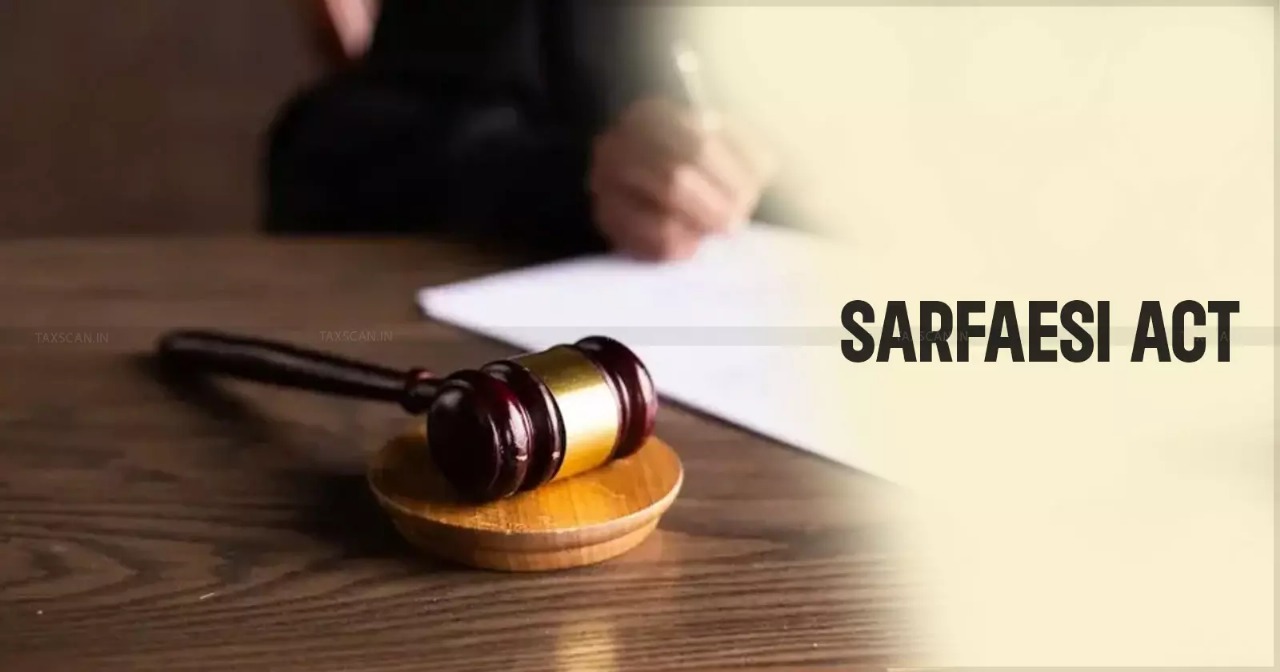‘HCs Should Refrain from Entertaining Article 226 Petitions Where SARFAESI Remedy Exists’: Patna HC in Indian Bank Case [Read Order]
HC held that the petitioner has an effective alternative remedy of appeal, and the writ petition was not maintainable
![‘HCs Should Refrain from Entertaining Article 226 Petitions Where SARFAESI Remedy Exists’: Patna HC in Indian Bank Case [Read Order] ‘HCs Should Refrain from Entertaining Article 226 Petitions Where SARFAESI Remedy Exists’: Patna HC in Indian Bank Case [Read Order]](https://images.taxscan.in/h-upload/2025/07/10/2062464-hcs-should-refrain-from-entertaining-article-226-petitions-article-226-petitions-taxscan.webp)
The Patna High Court affirmed that the High Courts should refrain from entertaining petitions under Article 226 of the Constitution when there is an alternative remedy under the SARFAESI Act, 2002.
In this case, the petitioner, M/s Maa Katyayni Mercantile Pvt. Ltd., had filed a writ petition against the order passed by the Debt Recovery Tribunal, contending that the order was passed in violation of provisions of the Recovery of Debts Due to Banks and Financial Institutions Act, 1993.
The petitioner is engaged in business through loans from the banks. Initially, the business was run as a proprietorship under the name "Sai Enterprises." The respondent in this case is the Indian Bank
The petitioner stated in the writ petition that although the respondent bank granted a Rs. 150 lakh cash credit facility in December 2008, the account had become a non-performing asset by December 2009. In accordance with a work order, the petitioner provided stone chips to Vishal Builtech (India) Pvt. Ltd. and was paid Rs. 1.64 crore by cheque, which was turned into the bank but not cashed. The petitioner also alleged that the payment was refused by the bank without any proper explanation, and later the bank suggested reorganising the company into a private limited company, which was complied with by the company.
The petitioner filed a Civil Writ Jurisdiction Case (CWJC), and in the counter affidavit filed by the bank, it denied receipt of the cheque and emphasized the absence of a deposit slip or any supporting document. It is to note that while the writ petition was still pending, 2 original applications were filed by the bank in the Debt Recovery Tribunal.
Understanding Common Mode of Tax Evasion with Practical Scenarios, Click Here
The issue of cheque adjustment was only presented in 2011 during restructuring proposals and SARFAESI proceedings, not at earlier credit sanction or conversion phases, implying it was an afterthought to prevent repayment. The disputed cheque was not tied to the loan account of M/s Katyayani Mercantile Pvt. Ltd., which filed the writ.
 Also Read:Writ Jurisdiction Not Maintainable when Alternative Remedy Contemplated under SARFAESI Act: Madras HC [Read Order]
Also Read:Writ Jurisdiction Not Maintainable when Alternative Remedy Contemplated under SARFAESI Act: Madras HC [Read Order]
The counsel on behalf of the respondent submitted that the petitioner has an alternative efficacious remedy under Section 18 of the SARFAESI Act to approach the Debt Recovery Appellate Tribunal (DRAT).
The counsel relied on the case of Phoenix ARC Private Limited vs. Vishwa Bharti Vidhya Mandir & Others, in which the apex court held that the High Court should not entertain a petition when a remedy under the SARFAESI Act is available.
The high court, by going through the various precedents of the Supreme Court, reached the conclusion that it should entertain an application under Article 226 of the Constitution if there is an effective remedy available to the aggrieved persons under the provisions of the SARFAESI Act and held that the writ petition was not maintainable.
Justice G. Anupama Chakravarthy dismissed the petition.
Support our journalism by subscribing to Taxscan premium. Follow us on Telegram for quick updates


